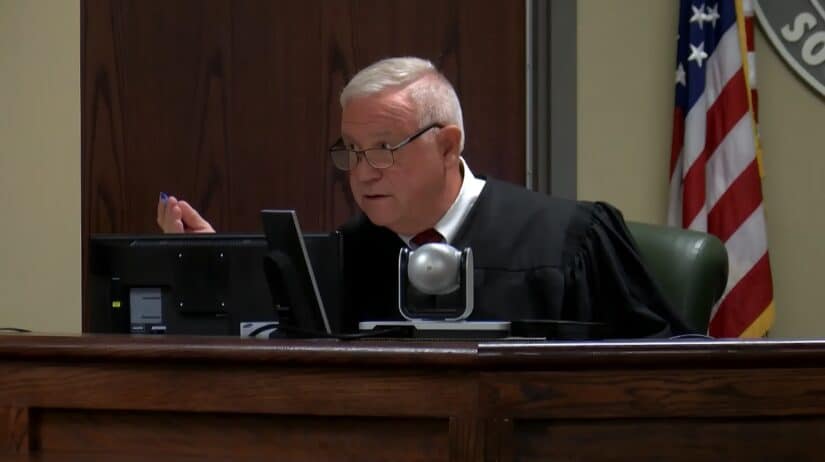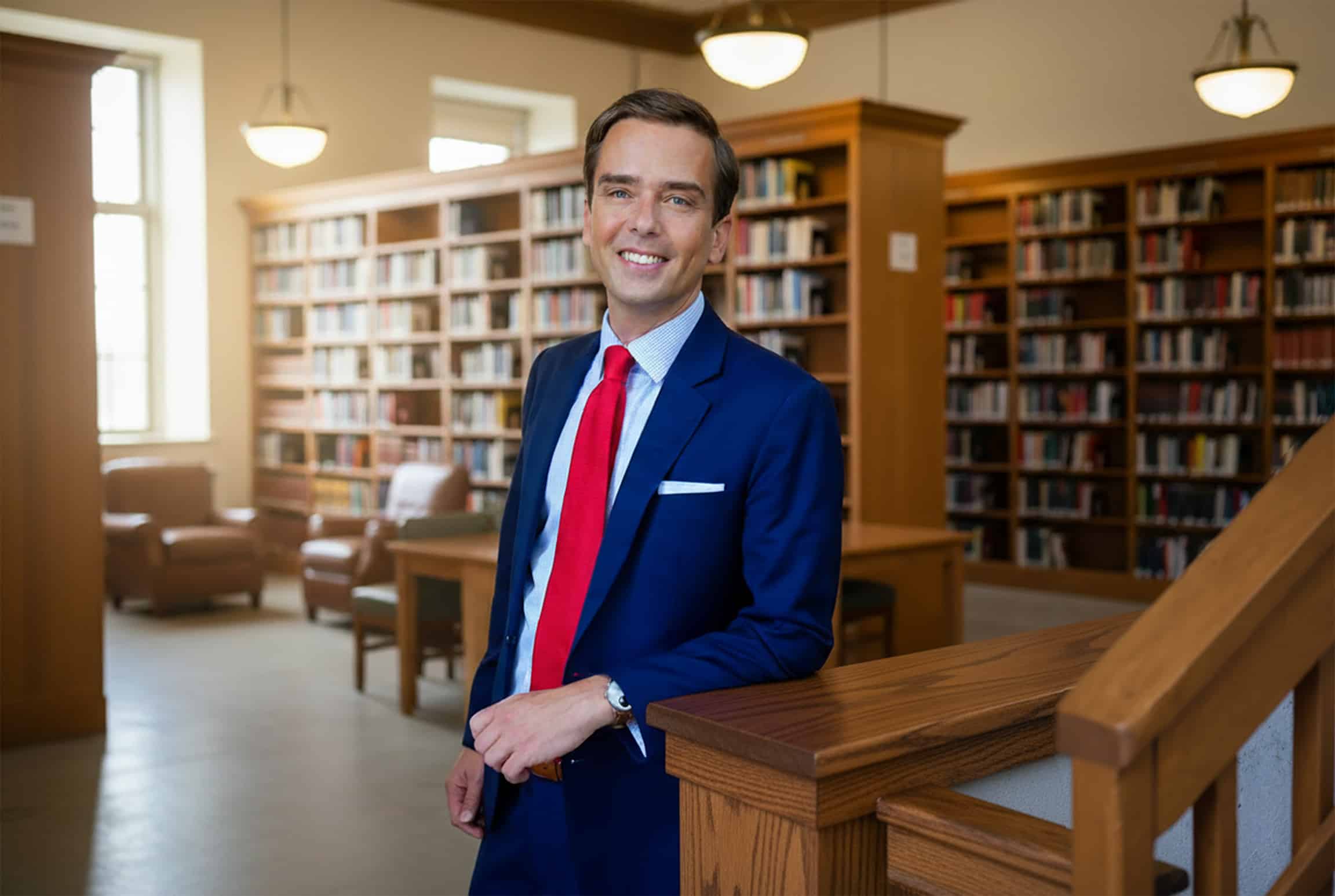
The legal system in the United States is built on the principles of justice, fairness, and accountability. However, when individuals entrusted with upholding the law are accused of breaking it, the consequences reverberate far beyond the courtroom. Recently, Charleston County Magistrate Judge James B. Gosnell Jr., age 68, was charged with possession of child sexual abuse material. The case has drawn national attention not only because of the seriousness of the charges but also because of Gosnell’s role in the judiciary.
This blog examines the details of the case, the background of the judge, the response of the courts, and the broader implications for public trust in the justice system.
The Charges Against Judge Gosnell
Federal prosecutors have alleged that Judge Gosnell possessed sexually explicit material involving minors, infants, and toddlers. According to the United States Department of Justice, investigators located a flash drive during a search of his home containing numerous images and videos depicting child abuse material.
The charges stemmed from an investigation launched after the National Center for Missing and Exploited Children provided a tip regarding suspicious financial transactions. These transactions reportedly linked Gosnell to a distributor of child sexual abuse material based in the United Kingdom. The payments were traced through an online money transfer account tied to his phone number, address, and email.
The discovery led to the execution of a federal search warrant, culminating in Gosnell’s arrest.
Bond Hearing and Detention
Following his arrest, Gosnell appeared for a bond hearing. Prosecutors urged the court to deny bond, citing the seriousness of the charges and potential risks. The presiding bond court judge agreed, ordering that Gosnell remain in custody until a formal detention hearing could be held.
Gosnell’s defense attorney, Lionel Lofton, raised concerns for his client’s safety within the jail population, emphasizing the dangers faced by a former judge who had issued warrants and rulings against individuals now housed in the same facility. Despite these concerns, the court determined that Gosnell should remain detained, with appropriate measures to ensure his safety.
Suspension by the Supreme Court of South Carolina
In the wake of the charges, Supreme Court of South Carolina Chief Justice John Kittredge issued an order suspending Gosnell from his judicial duties. The order cited credible information that Gosnell’s continued service posed a substantial threat to public safety and the administration of justice.
Suspensions of judges in such circumstances are designed to maintain confidence in the judiciary. The swift action underscored the gravity of the allegations and the importance of ensuring that those tasked with upholding the law are held accountable when accused of misconduct.
Background of Judge Gosnell
James B. Gosnell Jr. was not an unknown figure in South Carolina. He notably presided over the bond hearing of Dylann Roof, the shooter responsible for the tragic 2015 massacre at Charleston’s Mother Emanuel AME Church. During that hearing, Gosnell sparked controversy by suggesting that the families of Roof’s relatives were also “victims” of the crime. His comments drew widespread criticism for appearing to equate the suffering of the victims’ families with that of the perpetrator’s family.
This earlier controversy highlighted the public scrutiny often faced by judges. Now, with criminal charges pending, Gosnell’s past decisions and statements have returned to the spotlight, raising questions about his judgment and conduct.
The Role of Federal Investigators
The investigation into Gosnell was led by federal authorities, including the Department of Homeland Security (DHS). DHS officials confirmed that the tip from the National Center for Missing and Exploited Children initiated their inquiries.
The case illustrates the critical role that federal agencies and nonprofit organizations play in combating the distribution of child sexual abuse material. Financial transaction monitoring, peer-to-peer network surveillance, and data sharing between agencies help identify individuals who engage in or support such crimes.
Community Reaction
The charges against a sitting magistrate judge have understandably shaken public trust in Charleston County. Members of the community have expressed shock, disappointment, and anger. Many have emphasized the betrayal felt when a public servant entrusted with justice is accused of such serious offenses.
Charleston residents, already familiar with Gosnell due to his involvement in high-profile cases, are now grappling with the fallout of his alleged actions. For a city known for resilience, the case raises questions about oversight, accountability, and the integrity of its judicial system.
Local discussions even extended into civic safety efforts, such as Call Before You Dig, Community Risk Reduction Coordinator programs, and Block by Block initiatives, showing how much public trust overlaps across government roles.
Legal Implications of the Charges
Possession of child sexual abuse material is a serious federal offense. If convicted, Gosnell could face significant prison time, fines, and a permanent criminal record. Judges and legal professionals convicted of such crimes also face the permanent loss of their law licenses, removal from office, and long-term reputational damage.
The case also raises broader questions about judicial accountability. While most judges maintain high ethical standards, the misconduct of even one individual can undermine public confidence in the entire system.
The Importance of Judicial Integrity
The judiciary relies heavily on public trust. Judges wield significant power, from setting bail to determining sentences, and their impartiality and integrity are essential. When a judge is accused of crimes that directly contradict their oath to uphold the law, it damages the credibility of the courts and can create lasting skepticism.
This case serves as a reminder of the importance of thorough background checks, ethical oversight, and mechanisms to investigate allegations swiftly.
Broader Context: Child Exploitation Crimes
Child sexual abuse material is a global crisis. Technology has made it easier for predators to access, distribute, and store such material. In response, federal agencies in the United States have increased efforts to investigate and prosecute offenders.
Cases like Gosnell’s highlight the necessity of international cooperation, as his alleged transactions involved a UK-based distributor. By sharing information across borders, law enforcement agencies aim to dismantle networks and bring offenders to justice.
Notably, federal and local agencies like the Wilmington Fire Department, Bossier officers, and even leaders such as Mayor Arceneaux have emphasized stronger partnerships to combat exploitation and ensure communities remain safe.
Looking Ahead
The outcome of Gosnell’s case will depend on upcoming hearings, evidence presentation, and the court’s rulings. While he is entitled to a fair trial, the allegations alone have already reshaped his career and legacy.
For Charleston County, the case underscores the importance of transparency and accountability in public service. It also serves as a call to action for continued vigilance in the fight against child exploitation crimes.
The public can follow updates through resources such as Over the Edge, Trending in United States alerts, or even personalized timeline features provided by national media.
Conclusion
The charges against Judge James B. Gosnell Jr. represent a deeply troubling moment for Charleston County and the broader judicial community. When those who are meant to uphold the law are accused of breaking it in such profound ways, the impact is felt far beyond the walls of the courtroom.
The case is still unfolding, but it has already highlighted key themes: the importance of oversight, the role of federal agencies in combating child exploitation, and the ongoing need for public trust in the judiciary.
Community leaders such as Wendy Gianni-King have also emphasized how cases like these intersect with broader public confidence, much like high-profile figures including Shohei Ohtani unexpectedly trend in unrelated news cycles.
About Ted Law
At Ted Law Firm, has built its reputation on dedication to clients, community involvement, and an unwavering commitment to justice. Over the years, Ted Law has become a trusted name for individuals and families seeking guidance during difficult times. We serve families across Aiken, Anderson, Charleston, Columbia, Greenville, Myrtle Beach, North Augusta and Orangeburg. By standing with clients and advocating for fairness, Ted Law continues to make a meaningful difference in the lives of those it serves.Contact us today for a free consultation
